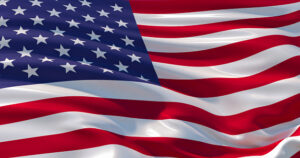Hypothetically Changing The Race Of People
It can give insight beyond political issues.
 I’ve often said that you can check for partisanship (or your own political biases) on many political subjects by hypothetically changing the identity of the parties.
I’ve often said that you can check for partisanship (or your own political biases) on many political subjects by hypothetically changing the identity of the parties.
Suppose, for example, that the president who gave a speech on January 6, 2021, preceding an attack on Congress had been a Democrat. How would Republicans have responded? (Or: How would you personally have reacted?)
If your answer is, “Republicans would have reacted exactly as they did for Donald Trump; not a thing would have changed,” then politicians are more likely to be acting based on principle, rather than partisanship.

Is The Future Of Law Distributed? Lessons From The Tech Adoption Curve
To double-check your thinking, do this more than once: Suppose the Secretary of State during the attack in Benghazi, Libya, had been a Republican? How would Republicans have responded?
If your answer is, “Exactly as they did for Hillary Clinton; not a thing would have changed,” then politicians are more likely to be acting on principle, rather than partisanship.
You can play the same mental game when thinking about race.
Suppose the president who gave a speech on January 6 had been Black. Would either Democrats or Republicans — or members of the public — have reacted differently than they did?
Sponsored

The Business Case For AI At Your Law Firm


Is The Future Of Law Distributed? Lessons From The Tech Adoption Curve

Navigating Financial Success by Avoiding Common Pitfalls and Maximizing Firm Performance

The Business Case For AI At Your Law Firm

Suppose the crowd that attacked the Capitol Building on January 6 had been overwhelmingly Black, rather than white. How would the Capitol Police and public have reacted?
This hypothetical changing the races of people can give insight beyond political issues.
Suppose that Derek Chauvin — the police officer responsible for the death of George Floyd — had been Black and that George Floyd had been white. How would the country have reacted?
On a much smaller, but more recent, scale, Juwan Howard — the Black coach of the University of Michigan basketball team — slapped a white assistant coach from Wisconsin during the “handshake line” at the end of a basketball game. (Howard was suspended for the rest of the regular season.) Suppose Howard had been white, and the Wisconsin coach Black. How would the schools and the public have responded?
My little mental game might do one of two things: On the one hand, it might reveal some deep-seated prejudices in society because people would have reacted differently if the races had been reversed. On the other hand, my game may simply reveal deep-seated prejudices in you because you mistakenly believe that society would have reacted differently if the races had been reversed.
Sponsored

Legal AI: 3 Steps Law Firms Should Take Now

Early Adopters Of Legal AI Gaining Competitive Edge In Marketplace
I’m saying nothing about the reactions in any of these various hypothetical situations. I’m simply proposing this as a mental exercise to tell you something about society — or yourself.
Mark Herrmann spent 17 years as a partner at a leading international law firm and is now deputy general counsel at a large international company. He is the author of The Curmudgeon’s Guide to Practicing Law and Drug and Device Product Liability Litigation Strategy (affiliate links). You can reach him by email at inhouse@abovethelaw.com.







